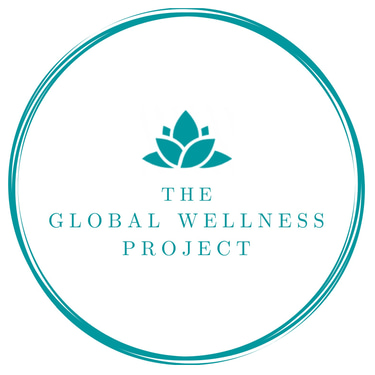Exploring the Global Wellness Economy Monitor 2024 - Part III
Addresses finding purpose, inner peace, and connection to a higher self through mindfulness and reflection.
HEALINGWELLNESSHEALTH
12/4/20243 min read


Part III: Spiritual Wellness – Cultivating Inner Peace and Purpose
Introduction
Spiritual wellness involves a deep sense of connection to a higher purpose, inner peace, and a harmonious alignment with one’s values and beliefs. The Global Wellness Economy Monitor 2024 emphasizes the growing importance of spiritual wellness, as individuals seek purpose and meaning beyond material pursuits. Spiritual wellness transcends religious practices and involves a holistic approach to one’s life, fostering a sense of well-being and fulfillment. In this article, we'll explore the core components of spiritual wellness, the emerging trends in this domain, and practical steps to nurture spiritual growth.
Understanding Spiritual Wellness
Spiritual wellness is defined as the ability to live a life aligned with one’s values, finding meaning in both joyful and challenging experiences. This dimension of wellness supports mental clarity, emotional balance, and an overall sense of purpose. Spiritual wellness is not confined to religious practices but includes personal beliefs, values, and the quest for understanding one’s place in the world.
Key Elements of Spiritual Wellness
Connection to a Higher Purpose
A sense of connection to something greater than oneself provides individuals with a framework for navigating life's challenges. Whether through religion, nature, or personal philosophy, this connection fosters a sense of peace and resilience.Mindfulness and Meditation
Spiritual practices such as meditation, prayer, and reflection enable individuals to connect with their inner selves. These practices reduce stress, enhance self-awareness, and increase emotional regulation.Altruism and Compassion
Acts of kindness and compassion play a central role in spiritual wellness. Helping others strengthens social bonds and creates a sense of fulfillment. Studies show that altruism can improve mental and emotional health, enhancing overall well-being.Self-Reflection
Regular self-reflection allows individuals to evaluate their actions, thoughts, and beliefs, promoting alignment with their core values. It encourages growth and self-awareness, integral to spiritual development.
Emerging Trends in Spiritual Wellness
Mind-Body Connection: Practices such as yoga, tai chi, and Qigong are being embraced not only for physical benefits but also for spiritual enrichment. These practices help individuals find inner peace while improving flexibility and strength.
Spiritual Retreats: There has been a rise in wellness tourism focused on spiritual retreats, where participants engage in meditation, mindfulness, and self-discovery in serene environments.
Integration of Technology: Digital platforms offering guided meditations, spiritual podcasts, and online yoga classes have made spiritual practices more accessible.
Psychedelic-Assisted Therapy: Research into the therapeutic use of psychedelics for spiritual and psychological growth is gaining momentum, especially in addressing existential distress and trauma.
Global Insight
The Global Wellness Economy Monitor 2024 reveals that North America and Europe are seeing significant investments in spiritual wellness, especially through wellness tourism and wellness-focused real estate. Asia-Pacific, traditionally rich in spiritual practices, continues to be a major center for holistic and spiritual wellness, integrating ancient philosophies with modern wellness trends.
Practical Strategies for Spiritual Wellness
Engage in Daily Meditation: Incorporate mindfulness practices or prayer into your daily routine to foster peace and self-awareness.
Explore Nature: Spend time in nature to deepen your sense of connection to the earth and its rhythms, often leading to greater spiritual insight.
Practice Gratitude: Keeping a gratitude journal helps cultivate an attitude of thankfulness, essential for nurturing spiritual well-being.
Volunteer and Serve Others: Volunteering fosters compassion and a sense of connectedness with the world around you.
Seek Guidance: Consult spiritual mentors, counselors, or therapists to gain perspective and strengthen your spiritual practice.
The Role of Spiritual Wellness in the Global Wellness Economy
The rise of spiritual wellness as a focus within the wellness economy reflects broader societal shifts toward holistic health. According to the Global Wellness Economy Monitor 2024, the growing demand for spiritual wellness practices is driven by increasing stress levels, a desire for deeper life meaning, and a collective search for healing and connection post-pandemic
Conclusion
Spiritual wellness enriches our lives by providing clarity, purpose, and a deep sense of connection. It encourages us to live authentically and in alignment with our values, fostering resilience and inner peace. As we move forward, spiritual wellness will continue to be a key area of focus, helping individuals lead balanced and fulfilled lives.
Citations
Global Wellness Institute. (2024). Global Wellness Economy Monitor 2024.
Greenberg, M. T., & Abenavoli, R. (2021). The role of mindfulness in cultivating well-being. Psychology of Well-being, 11(2), 90-104. This study explores how mindfulness practices can enhance mental and spiritual health.
Chade-Meng Tan. (2018). Search Inside Yourself: The Unexpected Path to Achieving Success, Happiness, and World Peace. HarperOne. This book presents a framework for integrating mindfulness into daily life.
Berman, D. S., & Packer, J. (2020). Spirituality and health: A guide for the mental health clinician. Journal of Mental Health Counseling, 42(4), 345-356.
Connect
Explore wellness topics and connect with providers.
Contact Us
Join
info@theglobalwellnessproject.com
© 2024. All rights reserved.
